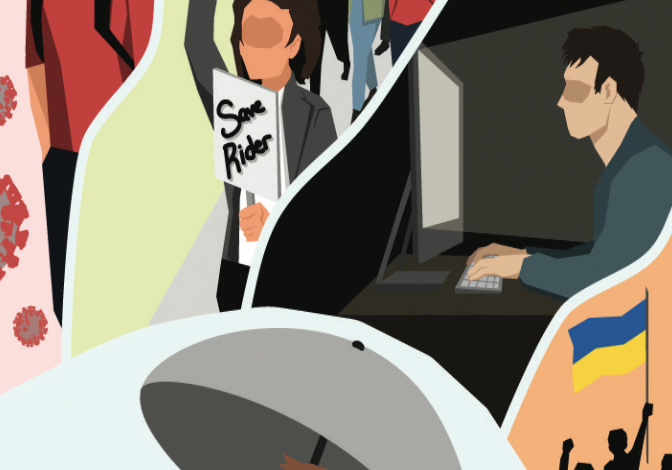
Spring break: a time to rest, reflect and recharge
By Kaitlyn McCormick
Seven weeks into the spring semester, it’s finally time for students to have a well-deserved spring break – emphasis on the word break. In a culture that prioritizes constant productivity and a collective drive to perform bigger and better than before, it’s important to remember the importance of rest.
Following the initial strict quarantine and isolation mandates of the COVID-19 pandemic, the public has been thrown abruptly back into a culture of burnout: A constant competition of who can work the hardest, achieve the most and still come out on top. College students especially are no exception to this expectation. The stressful and exhausting effects of jumping back into an in-person learning environment have already been discussed numerous times regarding both Rider and the larger community of higher education, but that’s just one piece of what may be stressing students out.
It’s been virtually impossible this academic year to ignore the extensive tensions between the faculty and the administration at Rider. This is especially true after the “Save Rider Rally” that was hosted by the university’s chapter of the American Association of University Professors outside the Bart Luedeke Center on March 2. Students and faculty alike right now are at a sort of crossroads. There is an overwhelming amount of information up in the air about their education, their careers and the future and integrity of their time at Rider. Not having answers to these huge questions has undoubtedly been presenting an added sense of anxiety influencing the mental health of Rider’s community.
Now take this Rider-specific example and tack on the current devastating Russian invasion of Ukraine that has been dominating news channels and causing uncertainty for future global relations. Add to this global crisis the pandemic anxiety that has been persisting since March 2020 and growing with the ebb and flow of vaccination, policy and mask requirement changes. All of these factors exist in addition to the very real fact that juggling a heavy course load on top of the many extracurriculars that students participate in is arduous. College is one of the most stressful and transformative periods in many students’ lives, without any of the extra pressure involved in hearing one catastrophic news story after another.
It’s easy to look at spring break as an opportunity to get ahead of classwork or pick up some more shifts at that hometown job, but if they can, students should also pencil in some time for themselves. This academic year has been anything short of easy, and being in the homestretch brings an overarching cloud of pressure and extra anxiety. Using this time to slow down and relax will alleviate the harsh impacts of these stressors.



